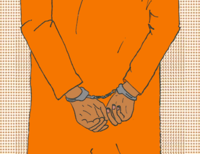What would prison telephone justice look like?
What would effective state executive or legislative action for prison and jail telephone justice look like?
by Peter Wagner, September 29, 2015
Tomorrow, I’ll be speaking by telephone to the Iowa Governor’s Working Group on Justice Policy Reform about how the state can bring down the the cost of calling home from prisons and jails. The Working Group was announced at the Iowa Summit on Justice & Disparities, organized by the Iowa and Nebraska NAACP where I gave the keynote address.
I thought my notes about what the executive and legislative branches in state governments can do might be useful to advocates in other states, especially while we wait for the Federal Communications Commission to issue their next ruling.
Executive Branch:
- Renegotiate the state’s contract with the phone vendor. At a minimum, you should be able to waive your commission and have the vendor reduce the prices proportionally. However, advances in technology (namely cheaper bandwidth) and the industry’s growing understanding that states are becoming more adept at recognizing how some vendors shortchange consumers (such as the costly ancillary fees) may give you even greater leverage. (Note: My understanding is that Iowa controls its phone system more than in most states. Iowa could abandon its goal of turning a profit on the phone system and instantly reduce the rates charged to families of people in state prison.)
- Determine if inappropriate or excessive fees are being charged for telephone calls or related accounts. If so, seek redress from the state’s vendor. These can include excessive credit card fees, or fees for retrieving unspent account balances. For a roadmap to this investigation, see http://www.prisonpolicy.org/phones/pleasedeposit.html.
- Order the State Treasurer to investigate whether phone companies active in the state are turning over unclaimed customer funds as required by state law. If no, seek redress. For a roadmap to this kind of investigation, see http://www.prisonpolicy.org/phones/letters_with_exhibits.html#unclaimed.
Legislative branch:
Require the state and its counties to negotiate for phone calls and video visitation services for people in their custody on the basis of the lowest cost to the consumer.
The strongest legislation:
- Applies to the state correctional system and any facilities operated by counties. (New York’s statute is extremely strong, but it does not apply to counties. The regulations in both Alabama and New Mexico are notable for applying to both the state prisons and the county jails. New Jersey‘s approach is interesting as the state negotiated to allow counties to opt-in to the state’s low-cost contract.)
- Prohibits commissions and other forms of profit sharing between vendors and the facilities including percentage payments, up-front signing bonuses, inflated “rent payments” or supplying technologies unrelated to the actual telephone service. For more examples of illicit profit sharing, see our August 1, 2013 letter to the FCC.
- Takes effect immediately and applies to existing contracts. (Bill drafters should be aware that vendors may rush to sign long-term contracts before the law’s effective date.)
- Requires the disclosure of all ancillary fees in the contracts and seeks to minimize these fees, which have historically doubled the price of a call but do not produce commissionable revenue.
- Prohibits the vendor from engaging in revenue sharing with third party payment processing and money transfer service providers.
- Ensures that customers’ leftover account balances be turned over to the state unclaimed funds program, as required by state law.
- Prohibits vendors from charging “single call fees” to people who do not have accounts with that vendor. These fees should be banned outright, but can also be replaced with a reasonable maximum credit card charge and a maximum call charge — as done by Alabama, where a non-account single call is now capped at $6; considerably less than the $14.99 that some of these vendors previously charged.
- Addresses video visitation services — the industry may use video visitation to circumvent regulation of phone services. Legislation should prohibit the state or any county from replacing traditional in-person visitation with video visitation. (Many jails nationwide are experimenting with video visitation. There is no charge to use the technology at the jail; but it is inferior to traditional contact or in-person visitation, and it is designed to drive consumers to use expensive video visitation from their homes. The typical rate is $20 for a 20-minute remote visit.)
- Ensures strong enforcement capability by clarifying the enforcing agency’s jurisdiction in the arena of inmate calling services. And explicitly confirms or strengthens the regulatory authority (perhaps the Iowa Utilities Board or other relevant agency) in this area to ensure that the legislation’s goal of reasonable phone costs remains intact as companies evolve their products to exploit any loopholes in the legislation.



